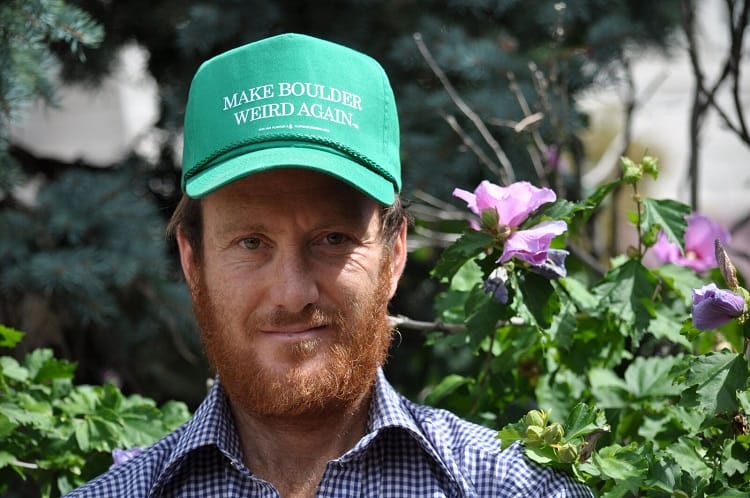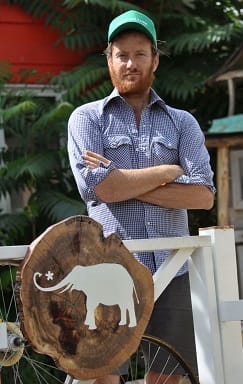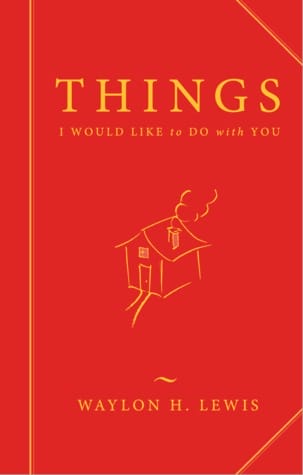Waylon Lewis: Elephant Journal

An Interview with Waylon Lewis: The Founder of Elephant Journal
Waylon Lewis is a “Dharma Brat,” or second generation American Buddhist. Founder of Elephant Journal and host of the Top-10 US Video Series “Walk the Talk Show,” he’s been named Treehugger’s Eco Ambassador & Changemaker, Discovery Network’s “Green Hero,” “Prominent Buddhist” by Shambhala Sun, Greatist’s 100 Influential People in Health & Fitness, & 5280’s Top Denver Single. A mediocre climber, lazy yogi & 365-day bicycle commuter, Waylon Lewis recently authored “Things I would like to do with You,” a book about a new kind of independent-minded, genuine love affair.
Interview of Waylon Lewis by OMTimes
OMTIMES: How did you first come to yoga?
 Waylon Lewis: On my hands and knees. I remember my first class—hot yoga…I literally crawled out of there.
Waylon Lewis: On my hands and knees. I remember my first class—hot yoga…I literally crawled out of there.
I started about 14 years ago when the elephant was beginning, before it was an elephant, really. I did a few classes around, then settled in at Richard Freeman and Mary Taylor’s Yoga Workshop. Loved that place—long classes (two hours), a focus on breath, alignment, adjustments, meditation, eco-responsibility. It’s hard to find that elsewhere, though there’re lots of great fun yoga studios.
I remember one of my first classes, I was struggling super hard to do a backbend. And Richard came and stood over me and gently pulled me up while smiling at me…he was all I could see. And I took the biggest breath of fresh air that I’d taken in 10 years, say. It was an eye- and heart-opening moment. This yoga stuff is powerful.
And I grew up in the Buddhist community, in Boulder. It was fun and really helpful for me. I was a wild insecure sweet boy and Buddhism helped me get to know myself, and make friends with myself, and direct my energies toward being of benefit.
So yoga seemed like a natural, more extroverted and happy extension of my Buddhist path.
OMTIMES: You’ve written about “good yoga,” or “true yoga.” Who are you do define that?
Waylon Lewis: There’s a lot of pop yoga out there. You know, like pop music. Top 40. Yoga that’s more about the cult of personality and spiritual-lite advice than it is about a path. Yoga really can break our bodies, as that NY Times cover story showed. We shouldn’t be defensive about that. We should be careful—mindful—about our yoga practice.
And teachers have a greater responsibility to be safe and teach with good intent, alignment, breath and to keep studying and celebrating this path that we’re lucky enough to have connected with. Most classes I go to, it’s show. A popular fun, sweet teacher, being charming. There’s more attention to playlists than there is to adjustments, these days.
I’ve been honored to do videos with many great teachers over the years—Erich Schiffman, B.K.S. Iyengar, Seane Corn, Richard Freeman, Dharma Mittra, Cyndi Lee, Ana Forrest, Annie Carpenter, Tias Little, Rod Stryker, Jules Febre, Eoin Finn, Rachel Brathen and 108 others. All of them have a few things in common. They practice. They study. They have a sense of humor. They teach yoga, instead of merely grandstanding.
You’ll find a lot of teachers are almost the opposite—what we might call positivity, which I’m not a fan of. It’s good to be positive, of course, and there’s some basic wisdom to the law of attraction. But we have to be careful about pushing away the true if the truth is difficult, or critical, or negative.
When we remain open—what Chögyam Trungpa or Pema Chödrön refer to as “the genuine heart of sadness,” or empathy borne of experience—we can connect with others, we can serve this world, we can truly enjoy our lives, and we can become truly independent, strong, with a sense of humor about ourselves and our experience.
The spirituality I often hear from yoga folks is more about “push away the toxic, keep the positive.” That might sound common sense, but it’s actually horribly detrimental to a healthy state of mind and life. We need to be okay letting go of what we want, and strong and vulnerable enough to accept what’s negative or difficult with openness and empathy. Positivity can be at odds with empathy, and that’s sad.
OMTIMES: You often seem critical of the yoga community. Why?
Waylon Lewis: Elephant’s long been one of the biggest yoga communities in terms of articles and readership…I’m a huge fan of the yoga community’s opportunity to help this earth, and ourselves, and to bring what we learn on the mat—breathing through stress—to the world. We could help make this world more eco-responsible, kind, and open to those we don’t know or agree with.
But yes, I do think we’re trading a great deal of our potential for “me” yoga.
Yoga isn’t about me. It isn’t about you. It’s about me and you and you and you and all of us, and animals, and politics, and our planet. Often elephant will share something up about equal rights or eco-responsibility or an election on one of our Instagram feeds—we have nearly 500,000 fans—and a bunch of folks will say “don’t talk about politics!” “Keep it spiritual!” Or, if we post about prison reform or plastic use, folks just ignore it. My friend Rachel Brathen has noticed the same thing. But spirituality and yoga are about helping this earth, and making friends with ourselves. It’s for everyday life. It’s not just an escape. It’s practice to help us deal with this crazy life and mind and heart and world of ours.
OMTIMES: If everyone reading this did one thing, what would you want them to do?
Waylon Lewis: Meditate, every day, for five minutes, just after we wake up and just before we go to bed. That failing, right now…Just take a nice natural deep breath, with appreciation, and look up at the sky. We multi-task, so often. It’s really careless and unhealthy.
Put the phone down. Go for a walk. Don’t text and drive. Enjoy this moment. Enjoy your life! If you’re on your phone, or laptop—great. Do that whole-heartedly, with a relaxed focus, just as you do with your yoga practice.
As they say in Buddhism, “do all things with one intention.” And that intention, simply, is to be simply present, and through being present, to be of service.
OMTIMES: What’s ahead for Elephant?

Waylon Lewis: We’re at 10 million readers a month. Last year, we were at 23 million readers a month, but Facebook changed some things (which is where most readers read our articles). We’re independent media. We’re here to be genuine, of service. We hope to grow, to reach beyond the choir. We’re focusing on our newsletters, which are free. We’re focused on live video, which is fun. We’ve interviewed Deepak Chopra, Michael Pollan, Shiva Rea, you name it. Check ‘em out if so inspired. What ahead? We want to be one of the biggest sites in America, and the world. We want to be more community-driven. We want to do good journalism, and pay writers more than the $10K a month that we do now.
For myself, I’d like to get involved in politics directly, if that’s helpful and I’m any good at it. I’d like to raise a family. To do that, I’ll probably need to fall in love. Well—falling in love is easy. Your heart connects with another’s heart and boom! Biology and magic take care of the rest. But staying in love…that takes friendship, and patience, and forgiveness, and intimacy, and resilience.
I wrote a book about our evolving notion of relationships last year— “Things I would like to do with You”—about how to engage in love in a mindful, independent, spacious way that allows room for change and growth and working really, really hard. I probably work a bit much for most relationships to survive that kind of focus. We all still seem to want to fall in love. We’re not so sure about marriage, but many of us still want that, too. But we want a commitment to built-in freedom, room to breathe and change and grow. That’s not idealism—it’s practicality if we’re going to make a relationship work through, say, 50 years of challenges. So what does such a relationship look like? Luckily, I had the Buddhist notion of love to contemplate and study. Luckily, I had my own experiences and my parents’ experiences and my community’s experiences to look at. Good and bad, happy and sad, if we look at what’s happening, with awareness and deep openness, we can see a path forward.
OMTimes Magazine is one of the leading on-line content providers of positivity, wellness and personal empowerment. OMTimes Magazine - Co-Creating a More Conscious Reality




